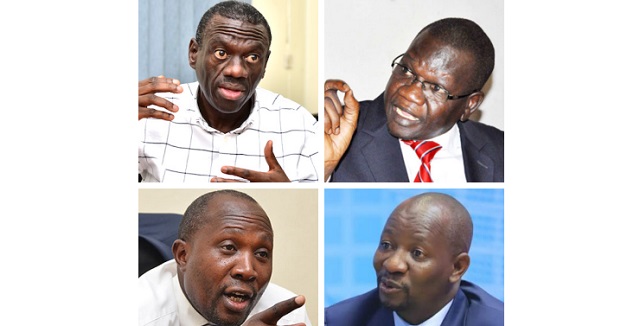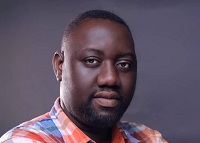
Why comedy of well-crafted theater scripts has unfolded within FDC which used to be regarded as one of the best
COMMENT | MICHAEL WOIRA | In the world of politics, what we learn in theory often doesn’t match up with what actually happens in practice. Speaking as someone who studied political science, I initially believed that my education would provide me with the knowledge and skills to make sense of the political dramas I observed.
My experiences observing Uganda’s politics have made me think about the importance of a special kind of education. This education would focus on leadership skills specifically needed for politics. In a world where politics is often like a complicated show, it’s essential that we take a close look at the condition of our political parties and what democracy really means.
Step into Uganda’s Parliament, and you might be forgiven for thinking you have wandered into a theater. The quality of debates, the level of discourse, and the nature of arguments presented often leave one questioning the seriousness of our elected representatives. It’s as if some legislators are contemplating matters not from the hallowed halls of governance but from the nearby National Theatre.
My intention is not to lament the quality of parliamentary proceedings, rather, it’s to underscore the importance of sound education in leadership management for politicians. Our legislators need more than campaign slogans; they need comprehensive training in governance, ethics, and the art of effective debate. Political science education, in its current form, appears to be falling short in producing leaders who can navigate the intricate web of politics successfully.
Many years ago, I contemplated pursuing the same course of study as one of our prominent politicians who graduated from Makerere University. However, my aspirations were met with skepticism and caution. Many believed that pursuing such an education would not lead to success or usefulness. Now, I cannot help but think that it might have provided valuable insights into the political challenges our nation faces today.
This is not something limited to Uganda alone. Politicians worldwide compete for attention, money, and influence, sometimes even sacrificing honesty and moral values in the process. In Uganda, it is disheartening to observe how funding from foreign organisations can lead a person from the same community or background to act against another, contributing to division and conflict.
A curious thing we often see among African politicians is that they leave their home countries using official airports, where they are safe and secure. However, once they arrive at their destination, they start saying that their own countries are dangerous and not safe. This raises questions about whether we, as Africans and Ugandans, are paying attention to what’s happening. Are we aware of the situation, or have we unintentionally become part of this political performance?
Political parties were once seen as the bedrock of democracy, the vehicles through which citizens could express their political will and aspirations. However, today, political parties seem to be in disarray. Factions and cults have emerged even within the ruling party, each with its own interpretation of national politics. The multitude of conflicting voices within political parties makes you wonder where things went off track.
The FDC drama
In the past two months, a comedy of well-crafted theater scripts has unfolded within one of Uganda’s former main political parties, the Forum for Democratic Change (FDC). FDC used to be regarded as one of the best, until its leadership became embroiled in factional disputes.
One faction claims its headquarters, while another operates from the stronghold of a candidate who has repeatedly failed in the political arena. Dr. Kizza Besigye, a well-known figure in the FDC, has run for office several times but hasn’t been able to defeat “the old man with a hat.
Initially, the factions engaged in a war of words, accusing each other of being funded by the ruling party. However, as elections draw near, the true motives behind these conflicts come into focus. It’s now a battle between two men from the East, Nandala Mafabi and Patrick Amuriat, against a group from the central region, with support from the west.
The intense hatred and hostility between different political and social groups is a big problem nowadays. This hostility not only damages relationships within families, friendships, and workplaces but also causes divisions in society as a whole. It makes it really hard for politicians and the public to work together to solve important problems. These divisions also make people doubt and mistrust each other, which makes it easier for false information to spread.
Before we dive into the details of how political parties work, it’s crucial to understand the basic idea behind them. In a democracy, power and influence aren’t given freely; they’re fought for. The main players in this contest are political parties. These parties engage in a constant struggle to win the support of the public and in this case the National Resistance Movement (NRM) has always won.
Political parties have played a pivotal role in elections, serving as the vital link between citizens and democratic leadership. They are the lifeblood of democratic competition and representation. Indeed, many consider democracy itself “unthinkable” without political parties.
Political parties give people a means to show themselves as candidates for political jobs and share their manifesto to explain their ideas and values. This is what many opposition political parties have failed to do in Uganda.
It’s clear that we need special education that teaches our politicians how to be good leaders in the world of politics. This education could give them the right skills to handle the complex job of governing. Our political parties, which used to be strong pillars of our democracy, are now a mess. They have groups inside them fighting for power, and this is making them less effective.
Nevertheless, we must not lose sight of the fundamental role that political parties play in a democracy. They are essential for recruiting leaders, articulating group interests, and holding the government accountable.
To overcome the animosity and divisions that plague our society, we must recognise the importance of responsible politics, where parties focus on policy, ideology, and the welfare of the people, rather than personal gain or power struggles.
Ultimately, how well Uganda is governed, just like in any other democracy, relies on how strong and honest its political parties are. It’s high time we make a united and determined effort to revive and improve our political scene. We should leave behind the dramatics and divisions for the sake of making our nation better for all its people.
*****

Michael Woira is a patriotic Ugandan
 The Independent Uganda: You get the Truth we Pay the Price
The Independent Uganda: You get the Truth we Pay the Price



